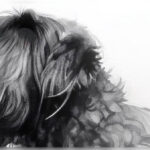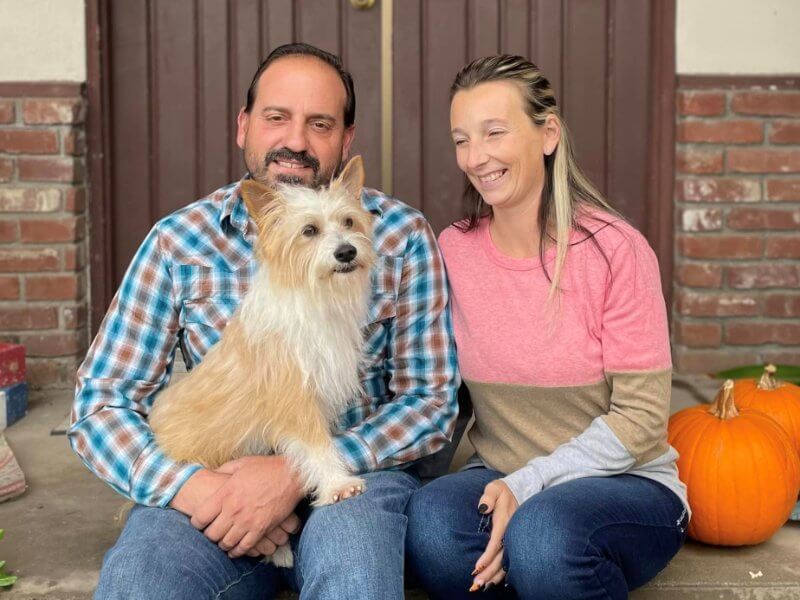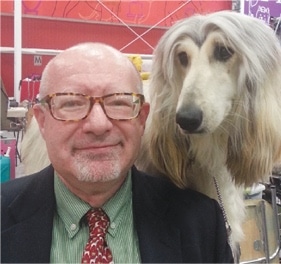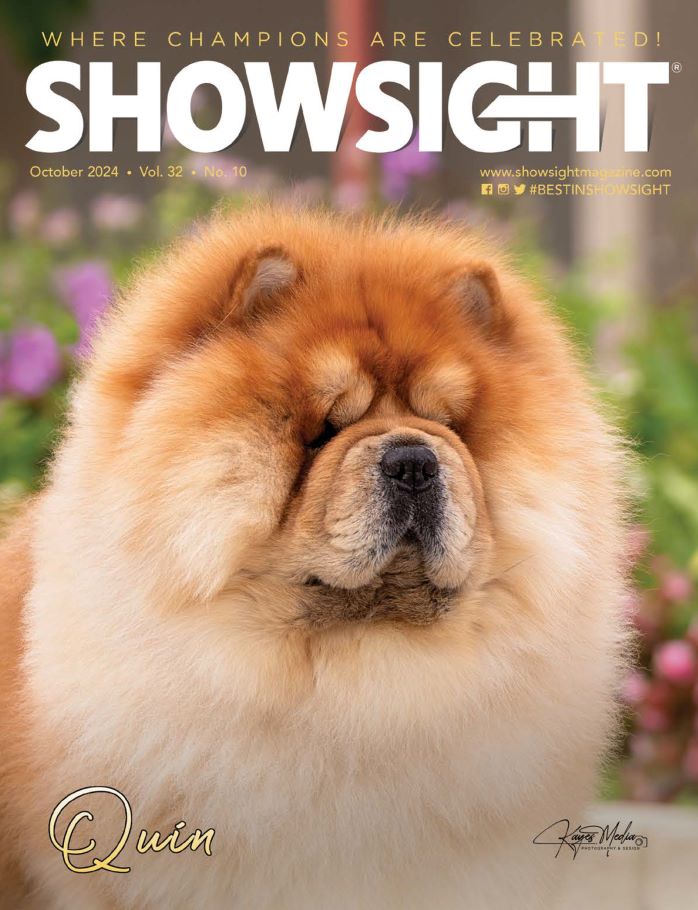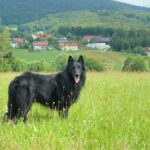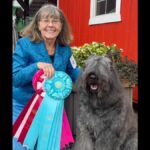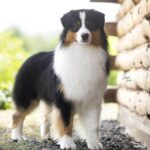Interview with Adrian Ghione & Nicole Torre, Breeders of Tango Portuguese Podengo Pequenos
Where did each of you grow up?
We both grew up in very different parts of the world. Nicole grew up in the North Bay area of California, in a town called Santa Rosa, while Adrian grew up in Argentina.
Do you come from doggy families? And if not, how did the interest in breeding and showing purebred dogs begin?
Nicole: Yes, I grew up in a doggy family. My grandmother was into dogs and my mother bred Doberman Pinschers my whole childhood. As a child, I always helped with the dogs and grew up working in the kennel. I always helped with whelping, raising, and socializing the litters, too. I spent most of my weekends going to dog shows, coming home from school during the week to help in my mom’s grooming shop and with the kennel she had. My mom bred about three litters of Dobermans a year, and I was quite involved with the whole breeding process.
Adrian: No, my family did not own a purebred dog until I was 16. My journey began in Obedience and competitive Agility with an Akita. After realizing the need for a mentor, I took a job as an assistant to a local handler and started working my way toward the show ring, and eventually, the whelping box.
Who were your mentors in the sport? Please elaborate on their influence.
Nicole: Professional handlers Corky and Sue Vroom were the most influential mentors I had when it came to the business of the sport, but when it came to breeding, it was my mom, Katherine Torre, and her co-breeder, Michelle Santana of Foxfire Dobermans. They were the ones who showed me the ins and outs of why they bred this bitch to that dog, and then how to take care of a pregnant bitch and raise a litter of puppies. They were my mentors in breeding Dobermans. Another mentor was Marjorie Brooks of Manorie Kennels who taught me everything I know about breeding Dachshunds and introduced me to hand-stripping. Tammy Myers of Medley Manchester Terriers was another mentor of mine who taught me a lot about breeding Manchesters.
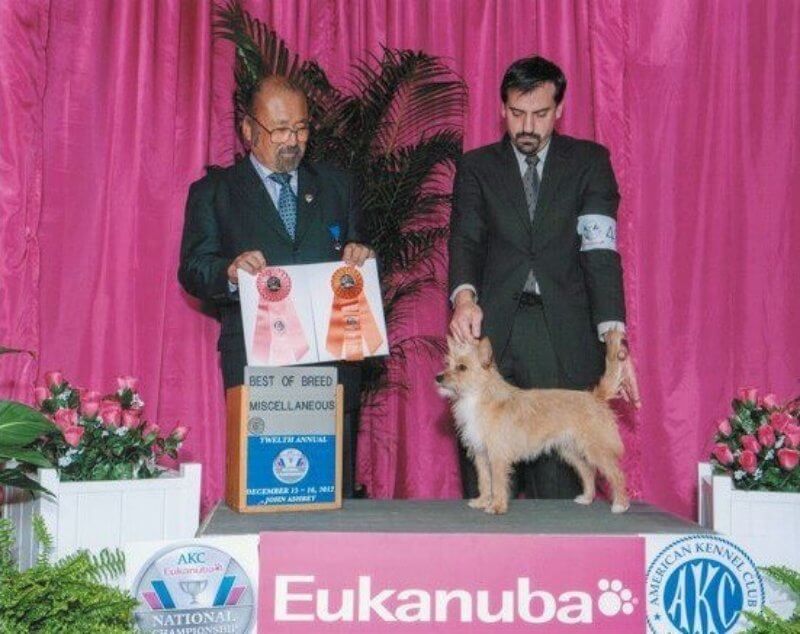
Adrian: My first job was as an assistant to handler Felix Garcia while I was attending university, studying to become a mechanical engineer. He showed me the ropes and allowed me to gain experience and confidence working with a lot of different breeds like Poodles, Schnauzers, and Springers, just to mention a few. Once I came to the United States I was hired to work as an electrician, but it didn’t take long before the passion for dogs set the course for my future.
After sending out 200-plus emails that went unanswered, as well as an ill-advised employment/apprenticeship offer, I landed on Mark and Sally George’s doorstep, at Aberglen Kennels. I owe them most of what I know today. They not only demonstrated to me the proper way to show dogs, but also how to select breeding stock and pick the best prospects out of each litter. While under their guidance, we showed some top-winning dogs and worked with some of the country’s most prominent breeders.
Giselle Simonds of Bonsai Kennels introduced me to the scruffy-looking little dogs that are Portuguese Podengo Pequenos. We started a solid breeding program with the help of some very knowledgeable breeders.
Your Portuguese Podengo Pequenos (PPPs) are widely known, highly successful and well respected. What breeding philosophies do you adhere to?
Our breeding styles were very similar when we got together, and still are to this day, so it was easy to identify what we were going to breed for. For one thing, PPPs have a smaller gene pool because they are a newer breed to AKC, so keeping this in mind, we start with health and then breed for type. A wise woman once said, breed a good bitch to a good dog and you may get good pups. Joking aside, these words always resonated with us. Neither one of us believes in the “breed by numbers” trend going around. It is understood that pedigrees need to be read, not calculated.
We are Preservation Breeders who believe in keeping this breed as close to that ideal standard as we can, generation after generation. We want younger breeders coming into the sport to not only be able to enjoy these little hounds as much as we do, but also to have a good starting point by using our breeding as a foundation to establish their own breeding programs.
When evaluating candidates for breeding, we focus more on overall balance and type than on specific characteristics. Temperament is also important. Just because we breed for that one dog for us, we still have to make sure the rest of the pups we breed make great family dogs in their forever homes.
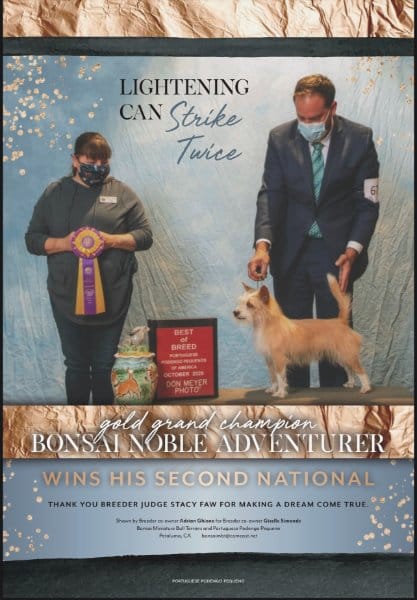
How many PPPs do you typically house? Tell us about your current facilities and how the dogs are maintained.
We normally keep around five PPPs in the kennel, along with our boarding and show clients’ dogs. We try not to keep too many PPPs as we feel it isn’t necessary to keep dogs in the kennel that aren’t active in the breeding program. We currently have indoor/outdoor kennels, with 10’ by 20’ gravel runs as well as 10’ by 10’ paver runs, along with a grooming salon, whelping room, and crate room to house all of our clients’ dogs’ needs. This facility is located on the same property as our home, allowing us to stay on top of everything that is happening with the dogs at all times. We live on the outskirts of Oakdale, California, on three acres in the country, where we have plenty of room to keep the dogs happy and well-conditioned.
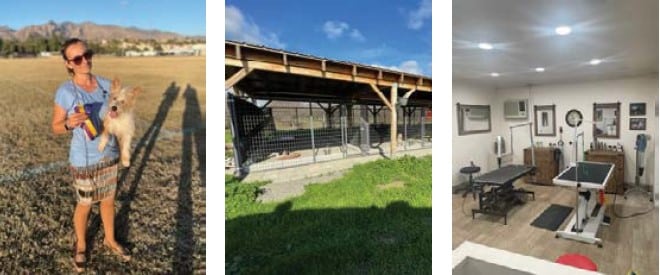
Who were/are some of your most significant dogs, both in the whelping box and in the show ring?
Honestly, one cannot talk about Podengos without thinking of “Vasco,” GCHS Bonsai Noble Adventurer. Vasco was co-bred by Adrian Ghione and Giselle Simonds. He went on to win Best of Breed at the National Specialty twice, once in 2017 and then we brought him back out again to win in 2020, becoming the only Pequeno to achieve this feat in the history of the breed. Vasco is also the No. 1 Lifetime GCH points PPP, the No. 1 PPP in 2017 in the breed, won Best of Breed at Westminster Kennel Club in 2018, and he has produced numerous champions, grand champions, and specialty winners. Of course, we have to mention our foundation bitch, GCH Pioneer’s Carolina CM2. She was the first PPP to go Best of Breed at an AKC show once they were finally recognized.
Please comment positively on your breed’s present condition and what trends might bear watching.
It is our belief that the breed is in a strong place right now, having earned attention from judges and fanciers alike. Entries all over the country are at an all-time high. This, of course, can be both a blessing and a curse. As a trend, with more people involved in the breed and numbers going up, we hope for the quality overall to improve.
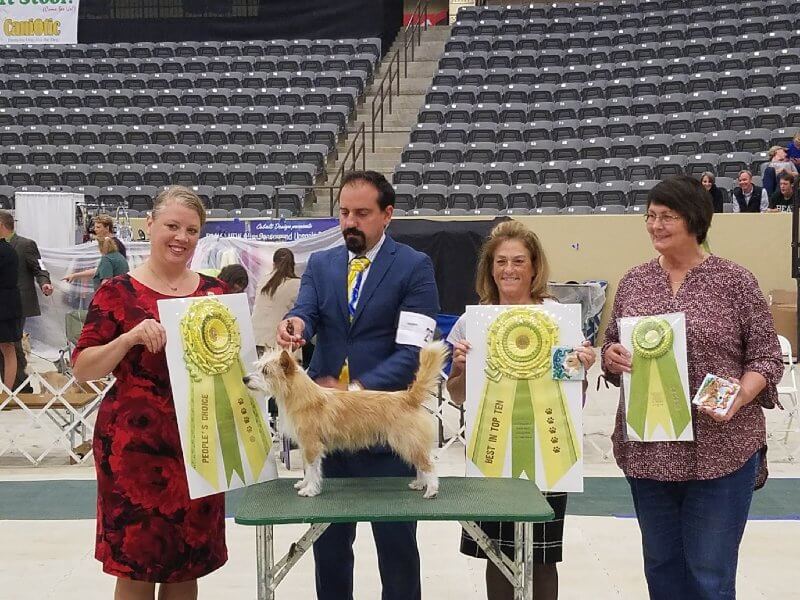
What are your thoughts on the current state of the fancy and the declining number of breeders? How do we encourage newcomers to join us and remain in the sport?
Without getting into a debate about politics and the economy… as breeders are being chased out of urban areas and severely limited in the number of dogs they can keep, it is a really hard task to maintain a breeding program. We all need to do our part to get the youngsters involved in all aspects of the sport, not just a few minutes in the ring during Junior Showmanship.
We strongly believe in the need for an influx of young people in all aspects of dog sports. A multitude of factors has affected the sport negatively. A declining economy, along with multimillion-dollar campaigns carried out by organizations like PETA and the HSUS, have discouraged people from acquiring purebred dogs. On the government side, misinformed legislation has made it more difficult, if not nearly impossible, to maintain a kennel with the necessary number of animals to carry out a good, well-planned breeding program. We, as breeders, get pushed further away from metropolitan areas, which makes education and promotion of our beloved breeds all that more difficult. This also affects our ability to find reliable help; people who, in time, could turn into apprentices and hopefully continue our legacy.
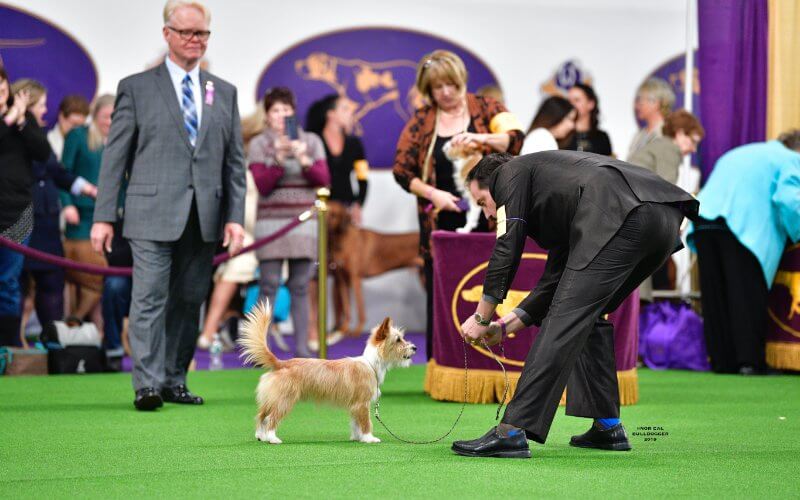
As many before us have wisely said, education is key. Nobody wants to have what they don’t know exists; nobody wants to be part of something they know nothing about. We truly believe this could be more easily achieved at small-scale, local or regional events. We as breeders need to bring our dogs out to the community and show everybody why we chose this breed. We need small, local events to attract the interest of younger audiences in all aspects of the sport: Conformation, Performance, Agility, Obedience, Coursing, and Hunting Trials.
Ultimately, attracting young people and keeping them engaged could be the key to longevity in our sport. Give those apprentices challenges and goals; projects with a tangible end. Encourage them to ask why and how, rather than just memorize the way we
do things.
Where do you see your PPP breeding program in the next decade or two?
Our program is here to stay; our course is set to keep breeding healthy dogs that perform both in and out of the ring. We will keep collaborating with other willing breeders. It is our belief that we should all work together to preserve not just this breed, but all of them. As most breeds evolve and change over time, it is our responsibility as preservation breeders to maintain breed type as unchanged and as close to the standard as possible. With this being said, we hope that in a decade or two, our program still represents this “need to preserve” philosophy that we should all embrace. And it is our wish that younger breeders will emerge and continue what we have started.
We have some exciting breedings planned for the near future as well as some “frozen stuff” for the long run. It is safe to say we look to the future with hope, while never forgetting how we got here.
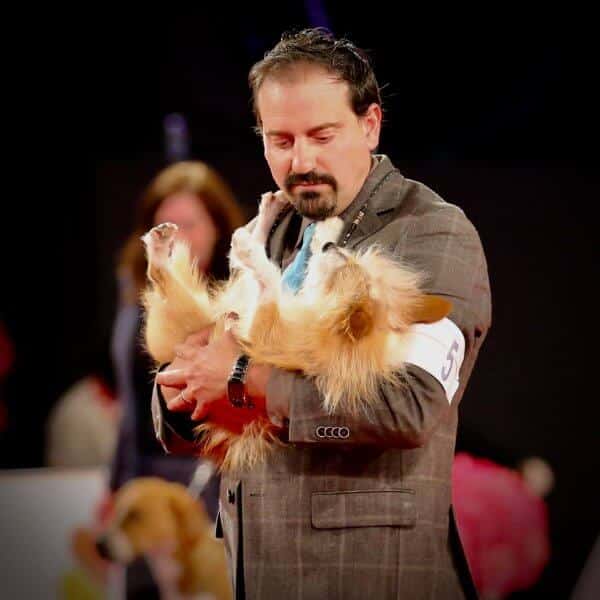
As most breeds evolve and change over time, it is our responsibility as preservation breeders to maintain breed type as unchanged and as close to the standard as possible.
Finally, tell us a little about Adrian and Nicole outside of dogs… your occupations, your hobbies.
Our occupations are the dogs and this lovely sport. We don’t take this lightly or do it as a hobby; these are our jobs and our responsibilities to be great breeders of the Portuguese Podengo Pequeno. We also are all-breed professional handlers, showing 50 weekends out of the year. During the week we run a grooming shop for our local pet owners, and maintain our current and retired show dogs as well.
Apart from the dogs, Nicole’s hobbies include cooking, board games with the kids, dance, and photography. Adrian’s hobbies include fishing, barbecuing, riding dirt bikes, playing video games, jumping on the trampoline with the kids, and just being a big kid himself.
